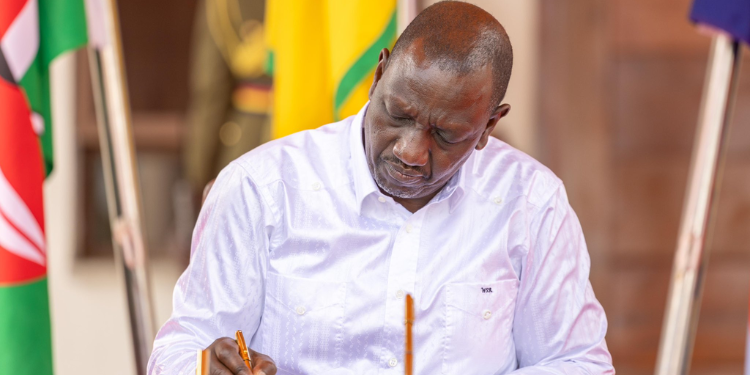National Assembly Committee Chairpersons have raised concerns over repeated and significant budget cuts, warning that they are undermining the implementation and completion of key government projects.
The issue was highlighted on Friday, May 23, during submissions on the 2025/2026 budget estimates to the Budget and Appropriations Committee.
On his part, Narok West Member of Parliament and Chairperson of the Administration and Internal Security Committee Gabriel Tongoyo requested additional funds to modernize the government printer, recruit 10,000 police constables, support ongoing security operations, and integrate village elders into the National Government Administrative Service framework.
The Chairperson of the Blue Economy, Water and Irrigation Committee, Kangogo Bowen, also decried the sharp reductions in budget allocations to the Ministries, Departments and Agencies (MDAs) under his purview.
“The State Department for Water and Sanitation has a reduction of Ksh1.96 billion in recurrent and Ksh8.4 billion in development expenditure; the State Department for Irrigation has a reduction of Ksh166 million in recurrent and Ksh2.19 billion in development, while the State Department for Blue Economy and Fisheries has a reduction of Ksh753 million and Ksh2 billion in recurrent and development expenditure respectively. This will ultimately affect critical ongoing projects,” said the Marakwet East MP.
Also Read: Health Budget Crisis: Ksh67 Billion Budget Cut Threatens Reforms
MPs cite budget cuts as major threat to projects
The Chairperson of Sports and Culture Committee Dan Wanyama highlighted the risk facing Kenya’s co-hosting of the 2027 Africa Cup of Nations (AFCON) with Uganda and Tanzania.
He decried the absence of a budget provision for the Ksh3.9 billion (USD 30 million) hosting rights fee, due by April 2026.
Also, the Webuye West MP proposed budget increases to improve sports infrastructure across constituencies and support various critical projects under his committee’s oversight.
On her part, the Chairperson of the Social Protection Committee and Thika Town MP, Alice Ng’ang’a, appealed for Ksh250 million to the Child Welfare Society of Kenya to expand its emergency response, education support, family tracing, and reintegration services.
She also requested an additional Ksh4.6 billion to commercialize the National Youth Service (NYS).
The Chairperson of the Environment, Forestry and Mining Committee Vincent Musyoka, on his part, proposed an increase of Ksh200 million each for the Restoration of Wetlands and Degraded Ecosystems Project and the Forest Roads Project.
The Mwala MP further recommended a Ksh400 million reductions in the Tree Growing Campaign and Rangeland Restoration Project, citing prioritization needs.
Earlier, the Health Committee in its submission, highlighted that health sector is grappling with a looming Ksh47 billion budget shortfall that could disrupt critical services
This includes the hiring of Universal Health Coverage (UHC) workers, delivery of HIV and TB care, and supply of essential vaccines.
This comes amid the suspension of key donor support particularly from the United States, a long-time backer of Kenya’s HIV programs.
According to the Health committee, the Ministry of Health urgently needs Ksh33.9 billion to sustain HIV and TB interventions, which are at risk due to the donor funding freeze. An additional Ksh4.2 billion is needed to procure vital HIV, family planning, and vaccine commodities.
The Ministry is also short of Ksh8.8 billion is required to recruit 8,500 healthcare workers under the UHC program.
Limited funding in health
Health Committee Chairperson Dr. James Nyikal explained that this amount is counterpart funding under GAVI and UNICEF agreements.
“If we don’t secure this funding, we’ll incur even higher costs later,” Nyikal told the budget team chaired by Alego Usonga MP Sam Atandi.
Also Read: No KCSE This Year? Ministry of Education Fumbles to Explain Why There is No Exam Budget
The Seme MP stressed the urgency of resolving the plight of UHC staff, whose contracts expire in May 2026.
Though the National Treasury has set aside Ksh4 billion for their stipends, more funding is needed to address ongoing strikes and workforce instability.
MoH estimates Ksh5 billion will be required to settle their dues at contract expiry, and another Ksh3.8 billion to transition them into permanent and pensionable roles.
“These workers are critical for achieving universal healthcare across all 47 counties. If we don’t resolve their concerns, they’ll remain on the streets protesting,” Nyikal warned.
Budget Committe member and Kiharu MP Ndindi Nyoro echoed these sentiments, calling the Ksh3.8 billion needed for permanent employment “a small price” for strengthening healthcare services and addressing youth unemployment.
Nyoro while urging the committee’s chairperson to prioritise the health workers’ concerns called on the government to swiftly confirm all 8,571 striking UHC staff, saying the required budget
“UHC healthcare workers have been offering selfless service to our country. The amount needed to confirm all 8,571 patriots and enhance their salaries must be a priority,” said the Kiharu MP.
His appeal comes days after Health CS Aden Duale stated that the government lacks funds to employ UHC workers until the next financial year.
Follow our WhatsApp Channel and X Account for real-time news updates.



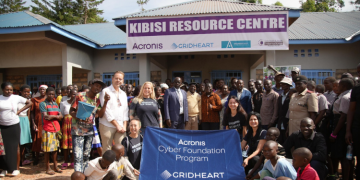
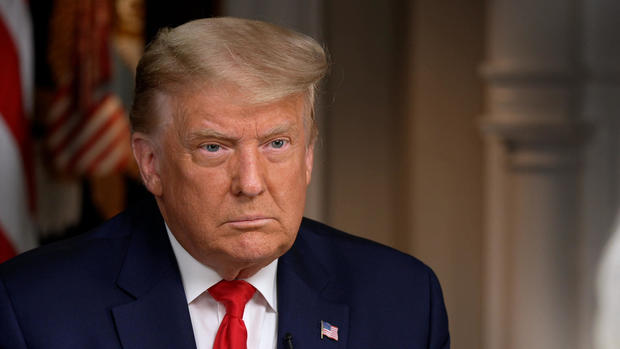
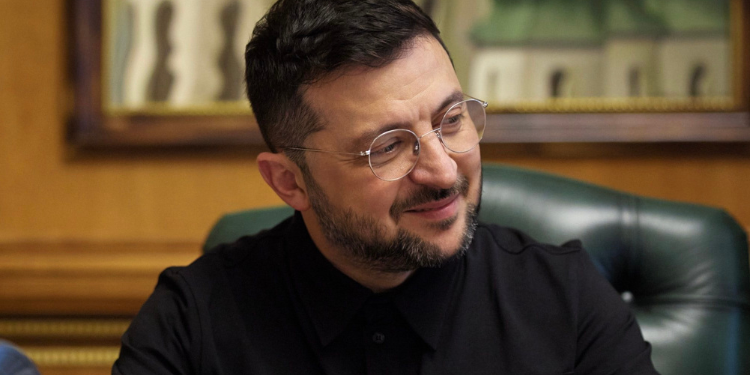
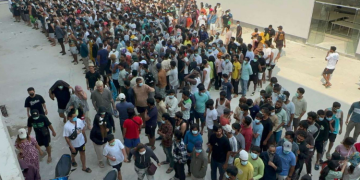











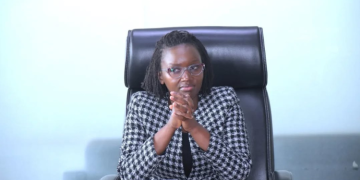

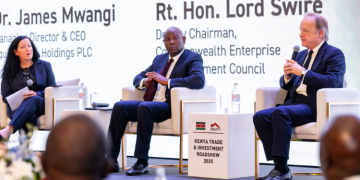
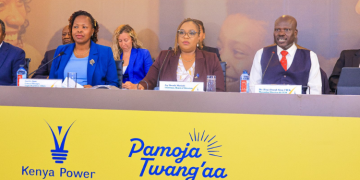













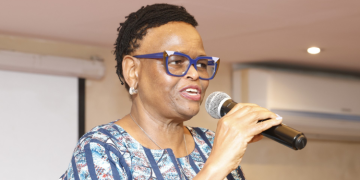





































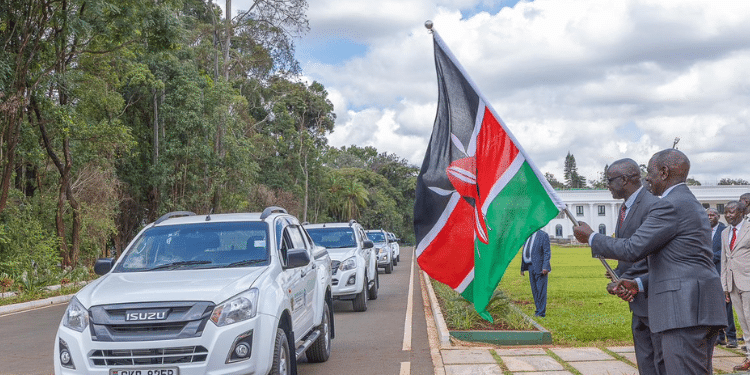


![14 Companies To Be Granted New Mining Licenses By Govt [Full List] Cs Joho Lists 14 Firms Seeking Mining Licences, Kenyans Given 42 Days To Respond]( https://thekenyatimescdn-ese7d3e7ghdnbfa9.z01.azurefd.net/prodimages/uploads/2025/11/Mining-CS-Hassan-Joho-touring-the-Voi-Gemstone-in-Taita-Taveta-County-on-Friday-August-16-2024.-PHOTOJoho-120x86.png)
